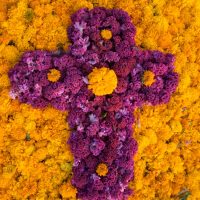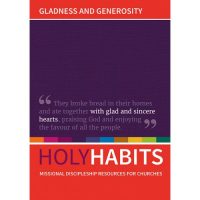Reflection by Revd. Sue McCoan
If you’ve been watching anything on commercial TV lately, and you’ve seen the adverts, you will almost certainly have seen the one inviting people to pick this year’s crops. For umpteen years now, most of the soft fruit and summer vegetables in this country have been picked by seasonal workers, mostly from eastern Europe. This year, because of Covid-19 and travel restrictions, they can’t get here – and the government is asking people who live here to do the work instead.
There are a whole lot of questions about whether people will be prepared to work for the same hours and wages, or to live in the same accommodation; we won’t go into those now. But what the adverts have shown, which is helpful for today, is the sheer variety and range of things that have to be harvested. It’s not just sheaves of golden corn that we sing about in harvest festivals; we have machines to do those. It’s tomatoes, and strawberries and cucumbers and apples. And if we can’t get people to pick them, farmers say, the crops will stay in the fields and rot.
Jesus, living in rural Galilee, knew about the different harvests – the grain harvest in Spring (and we remember the Jewish Pentecost was partly a harvest festival for the grain), but also in Galilee there would be the harvest of grapes and olives. And he uses the image of needing workers for the harvest in the first part of our bible reading.
Matthew 9:35-38
The more people Jesus helps, the more there are coming to him in need. And Jesus, like the rest of us, has only one pair of hands, and only 24 hours in a day. He’s not going to deal with all this single-handed.
Nor is he going to turn the people away. These are the people he’s here for: the people to whom he was sent to bring good news. Some are ill, physically or mentally; some are harassed and helpless, stressed out by the demands of life, without a leader they can trust or clear sense of identity and purpose. Jesus has good news – is good news – for all these people, but he needs a team to help him deliver. In Matthew’s gospel, we’ve already heard about Jesus calling the 4 fishermen, and then Matthew the tax collector, but here we get the full line-up. Let’s hear the second part of the reading.
Matthew 10:1-8
Jesus calls twelve people to assist him in his work: to be the labourers for the harvest.
In the sheaves of corn harvest, we sing about the crops being safely gathered in. It’s a collecting process; the grain crop is for storage. But with the summer crops, as the adverts remind us, it’s all about getting food onto people’s tables. Soft fruit doesn’t store well; it has to get out there and be used, get eaten. In this passage, Jesus is not sending the disciples out to make converts, to sign people up as followers. He is sending them out to be good news: to bring health and healing, of body and soul, to be inclusive and embracing and to rebuild the wellbeing of the whole community.
If ever there was a time when we needed healing and wholeness as a society, that time is now. There is the massive pandemic of Covid-19, which seems to be retreating but only because we’ve all been living like hermits for two months – we’ve no idea what will happen now we’ve started moving about again. In the last few weeks, since the death of Mr George Floyd, we have been sharply reminded of the disease of racism which has been eating away at us for centuries until white people have lost sight of their privilege and black people have lost hope of justice. We had settled into ‘that’s just how it is’, and now we are being challenged ‘but that’s just not good enough’. And this Sunday marks 3 years since Grenfell Tower.
Jesus sends us out into this world of fear and anger and deep, deep wounds, and tells us to bring healing.
We don’t hear, in this reading, what the disciples said in response to Jesus. Perhaps that’s just as well. It seems like an impossible task. Where do you even start?
A colleague used to say, when faced with a daunting task, ‘it’s like “how do you eat an elephant?”: “one bite at a time” ‘. And Jesus helps us with the manageable bites. He says, don’t worry about the Gentiles and Samaritans; start with the lost sheep of the House of Israel – in other words, start with the people you know. And then: you received without payment, give without payment. So share what God has freely given to you.
So we have the call, but then, what can we do? For many of us, at the moment, there is no option to go out and do anything. But maybe, while we’re stuck indoors, we can make it a time to educate ourselves. We can learn more about the colonial past of this country. We can face the truth that many of the heroes of our nation were also deeply flawed human beings. We can face the even more disturbing truth that the Christian church has been complicit in some of the worst aspects of racial injustice including the slave trade. In fact the church for hundreds of years used passages from the bible to justify slavery, and then preached to slaves on the need for Christian obedience.
We can educate ourselves about the history that led us to where we are today. But let’s not imagine this is all a long time ago and we wouldn’t do that now. In 2012, the Home Secretary, Theresa May, declared a hostile environment towards illegal immigrants. You may remember the ‘Go Home’ vans. It led to an immediate rise in racial hate crimes; it led to legitimate residents having their lives ruined; it led to what has now been exposed as the Windrush scandal, where people who had lived in this country for years were suddenly told they were illegal. Some were made destitute, some were deported; some died. And those laws have not been repealed. This is the top level of our government saying through their actions that black lives don’t matter. We need to face that, before we can complain about people toppling statues.
The anger is understandable. But we are called to do more than join in the anger. Facing all this reality, we are called to respond in prayer and love. The song, ‘Make me a channel of your peace’, which we sang earlier, is based on the prayer of St Francis. It reminds us that peace is not a passive thing. it’s not enough to keep away from hatred or to avoid hurting others; we need to be active in bringing love and pardon and light and hope. We need to be the harvest workers who will bring the fruits of justice to the tables of all.
Let me end with a prayer from the URC, from Karen Campbell, our Secretary for Global and Intercultural Ministries, and our two General Assembly Moderators.
Eternal God,
deeply troubled by what is happening following George Floyd’s death,
and by too much other inhumanity that doesn’t reach the headlines,
we cry to you as the one
whose love was the victor at Easter and
who pours it into our hearts at Pentecost.
As we observe the pain of a fractured world,
use your love to drive us from sadness to compassion;
as we watch the pain of the bereaved,
use your love to move us from pity to companionship;
as we are faced with the pain of marginalised people,
use your love to point us from complacency to your commonwealth.
In our praying,
let us not just talk to you,
but yield to your love;
in our anger,
let us not just rail against injustice,
but manifest your love;
in our actions,
let us not just flail about aimlessly,
but build the civilisation of love.
Until none of us is disregarded for who we are
nor any diminished by what we fail to be,
we keep on praying in the name of Jesus Christ,
Amen







